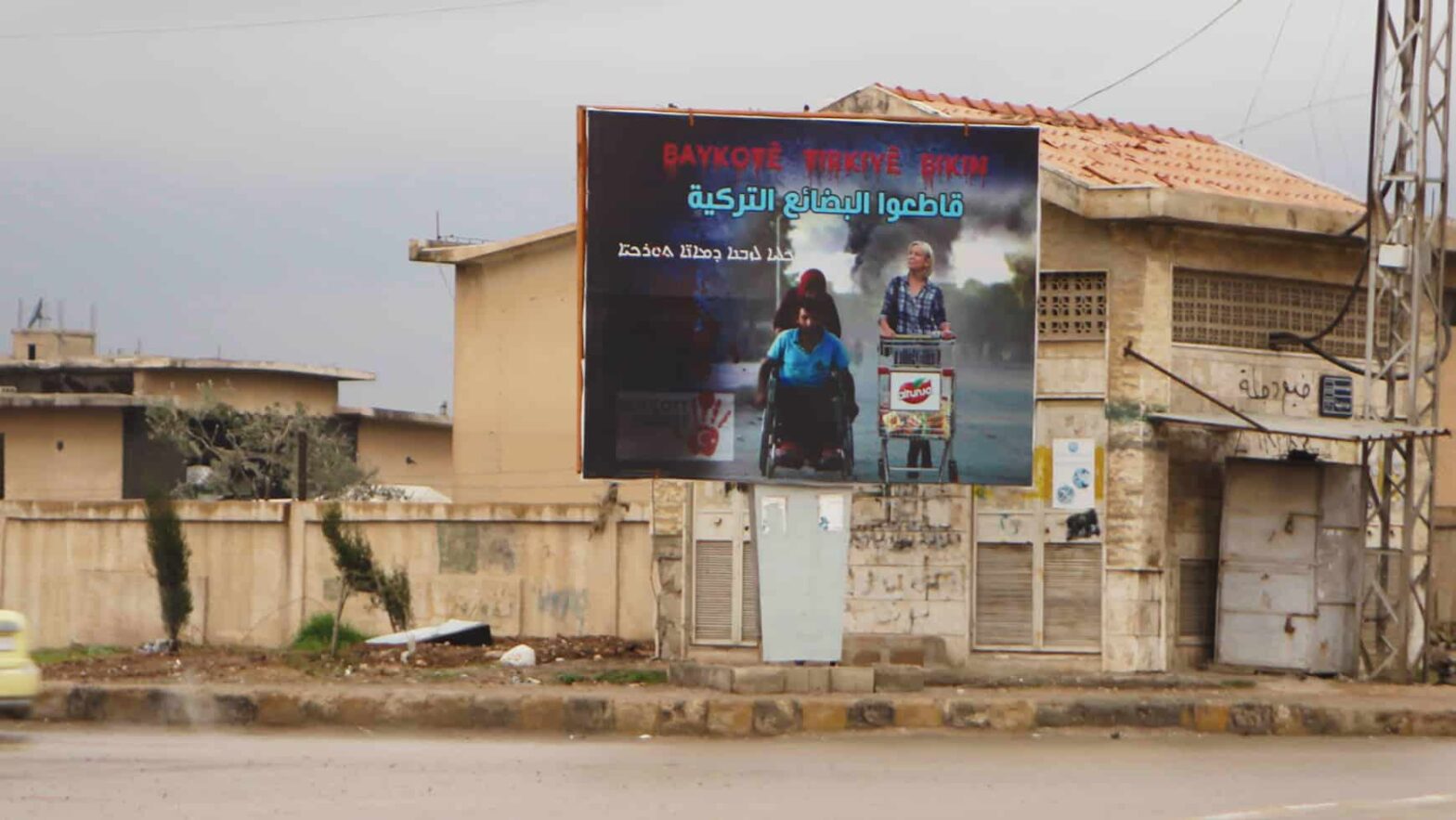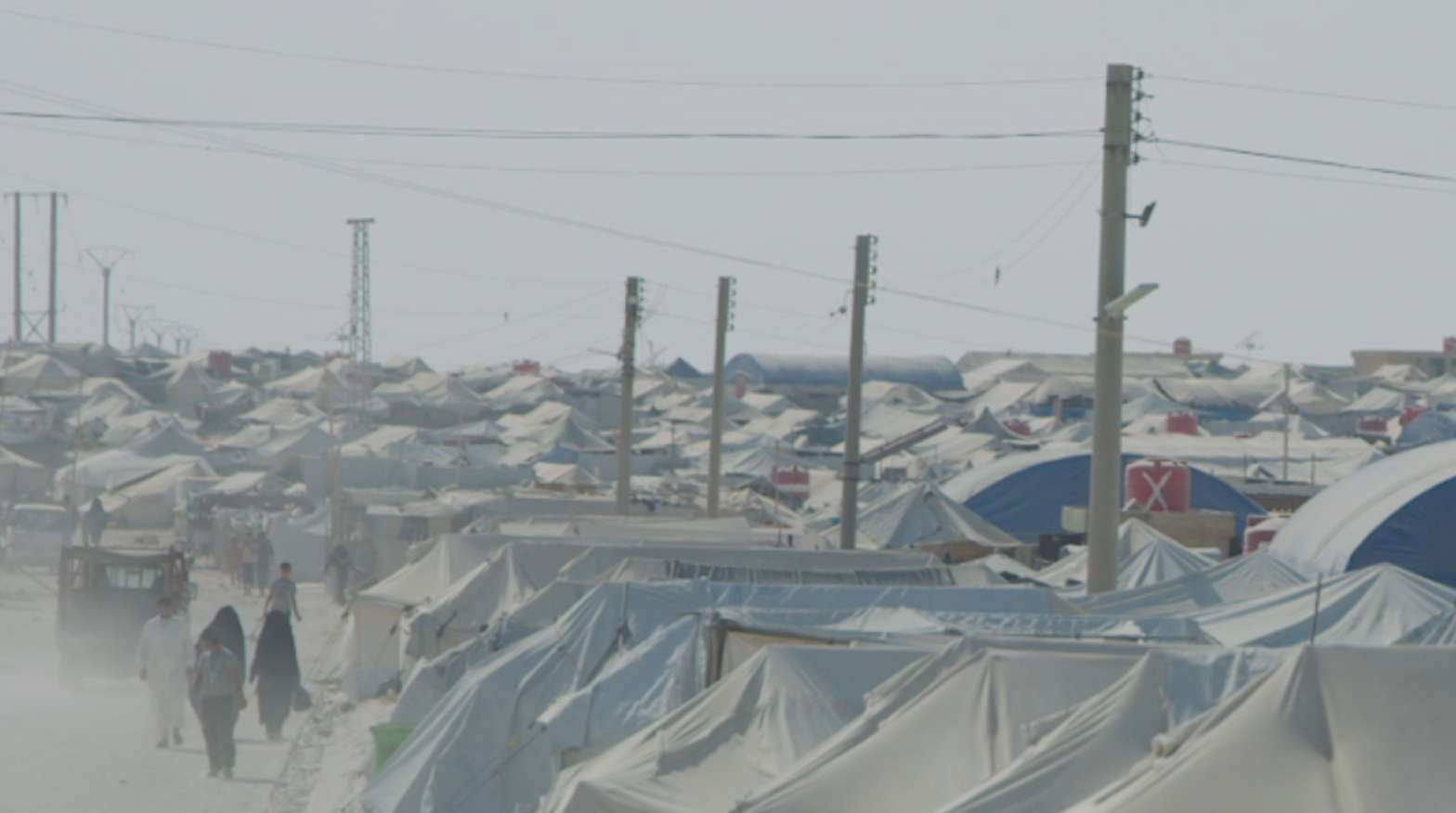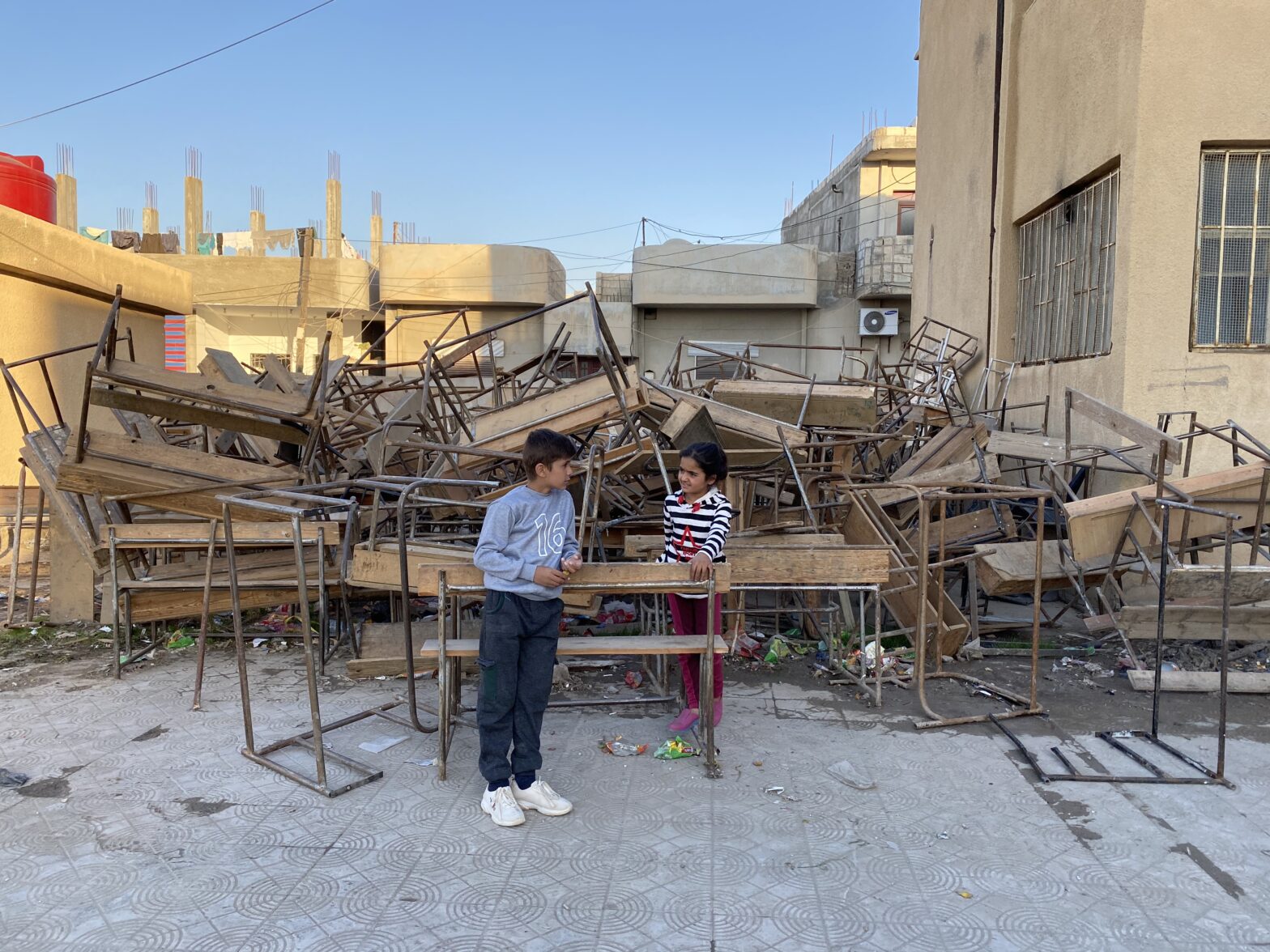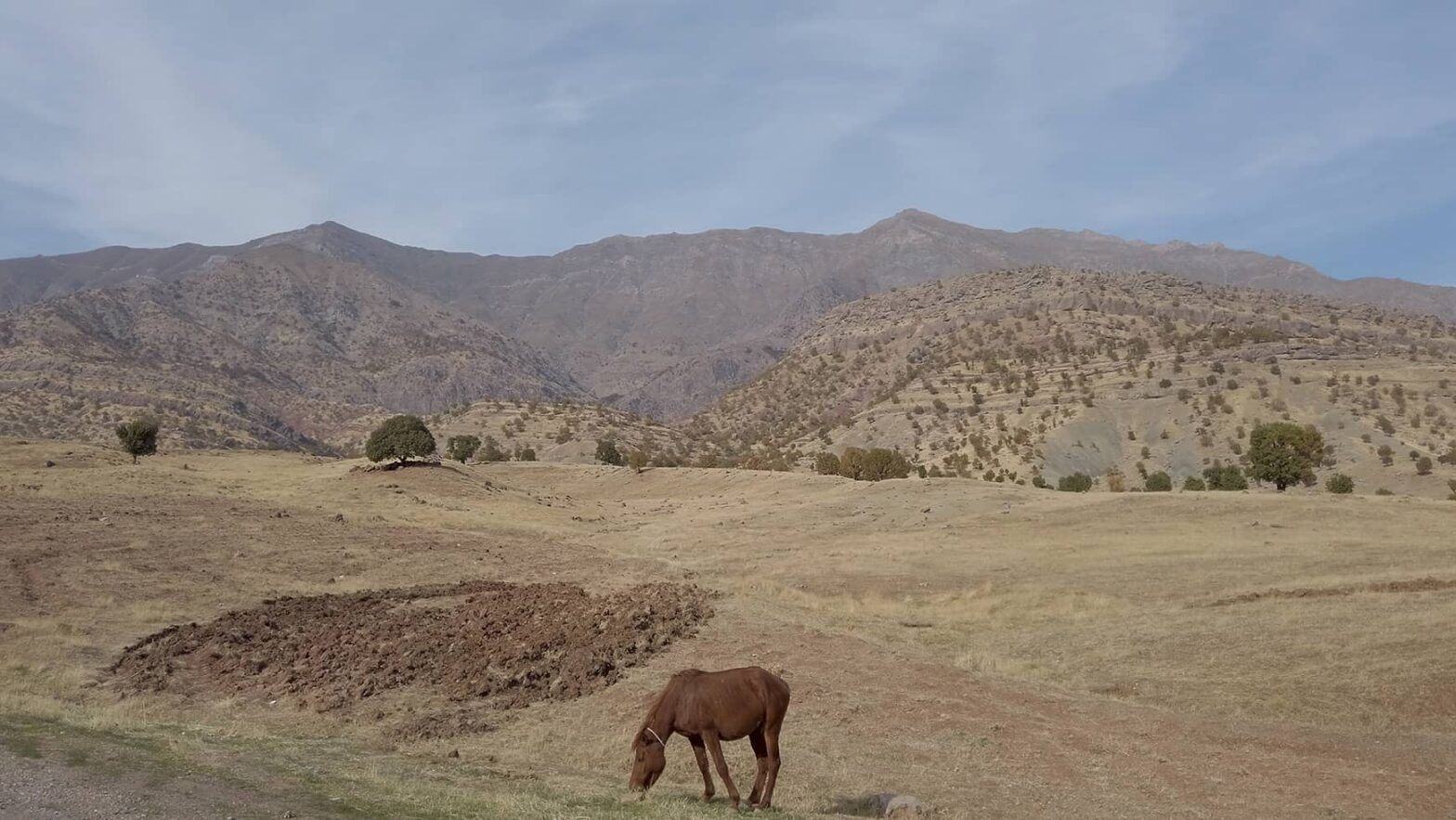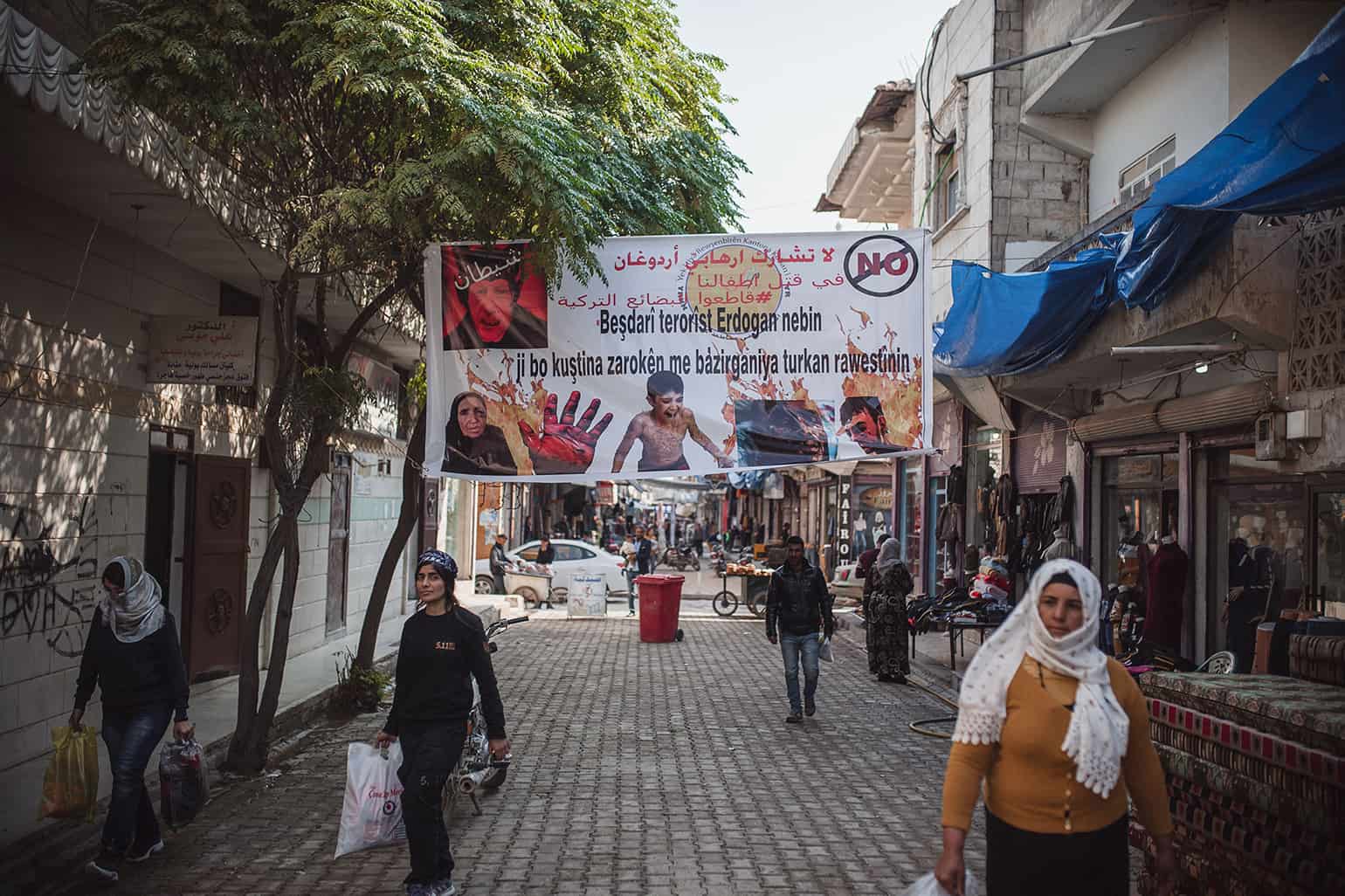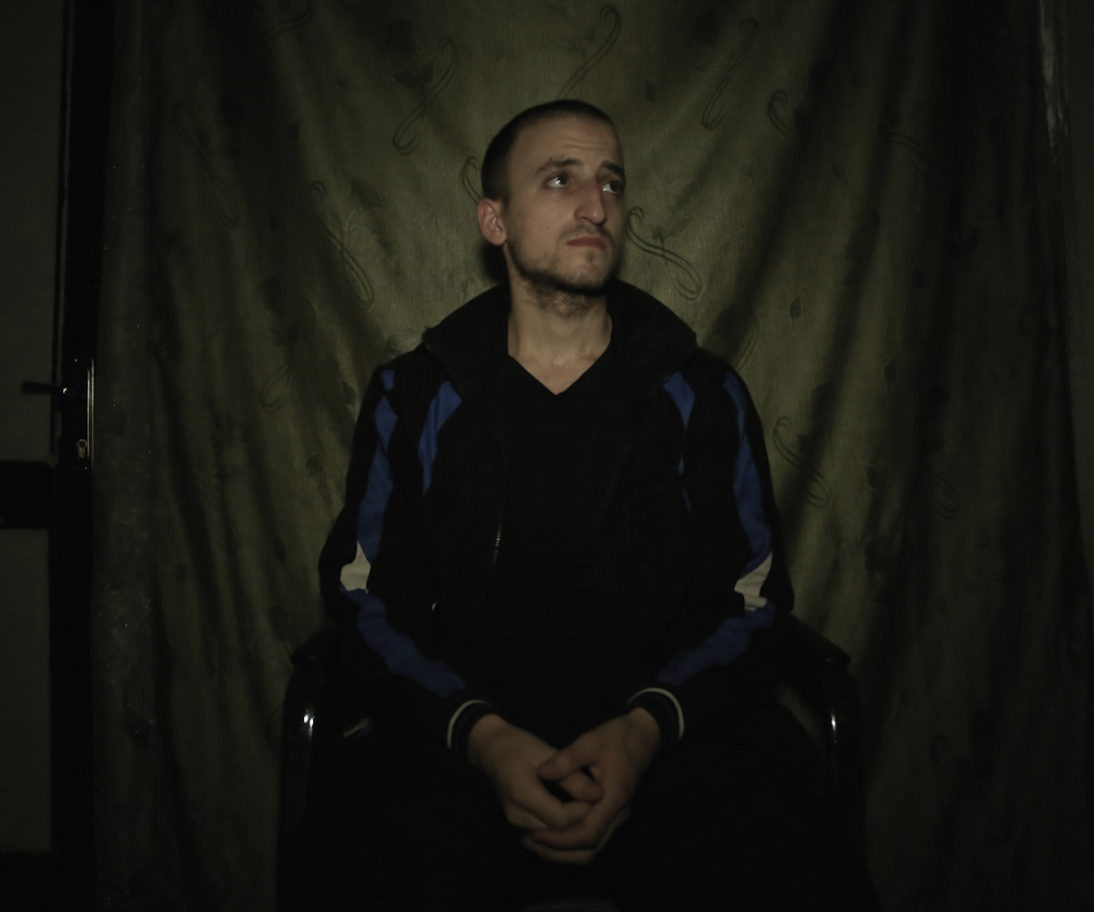At a small grocery store in Derik, Syria, one dusty case of Sariyer soda water sits underneath a shelf. “The self-administration [of North and East Syria] gave us time to finish selling the Turkish products we had in stock, like this one,” said the store’s owner. “After this, we will not be ordering more.”
When Turkey launched attacks on Northeastern Syria in October 2019, ultimately killing hundreds and displacing hundreds of thousands, a campaign asking locals to boycott Turkish goods immediately followed.

